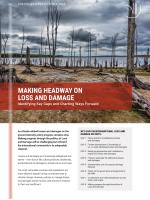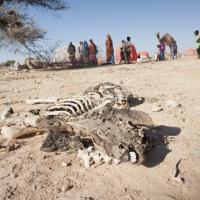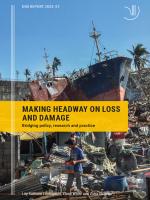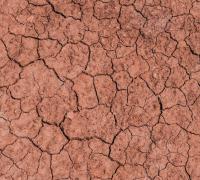Making headway on Loss and Damage
Climate change impacts – and related losses and damages – are rapidly intensifying across the globe, but international climate policy has failed to keep pace.
We are already seeing increased morbidity and mortality, ecosystem destruction, species extinctions, and food and water insecurity as well as slowed progress towards the Sustainable Development Goals and the decrease in global inequality – all of which are linked to anthropogenic climate change in the latest IPCC Assessment Report.
At the same time, progress in Loss and Damage policy has been slow. International climate negotiations on the topic are marked by deep divergences in country positions, especially between the developed countries more responsible for climate change and developing countries more affected by climate change.
Recently, Loss and Damage policy has cohered around three issues – the Glasgow Dialogue on financing arrangements, the Santiago Network on technical assistance, and the governance of the Warsaw International Mechanism to address loss and damage. However, all of these remain unresolved.
Major gaps remain in the international response to losses and damages. To support progress towards COP27 and beyond, this DIIS Report reviews the state of policy, research and practice on Loss and Damage and offers an assessment not only of gaps, but also potential ways forward.
This report is part of the study ‘Loss and damage associated with the adverse effects of climate change’, financed by the Nordic Council of Ministers. It reflects the views of the authors alone.
DIIS Experts






